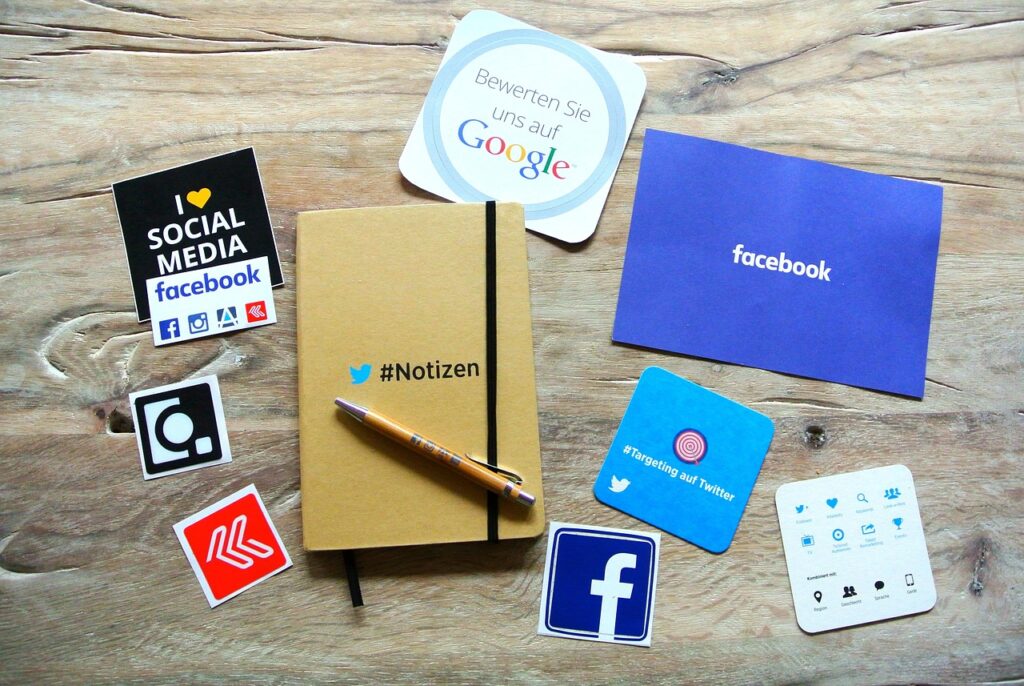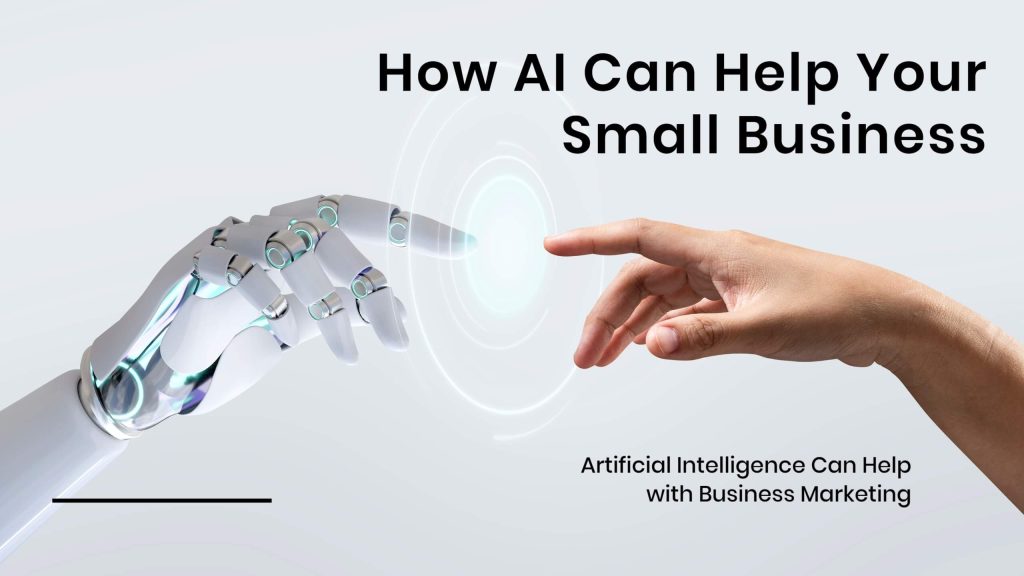Introduction:
A New Era for Small Business Marketing
What are the Digital Marketing Trends for 2025? In 2025, Artificial Intelligence (AI) is no longer just a futuristic buzzword — it’s a practical, affordable, and essential tool that’s transforming the way businesses market their products and services. While large corporations have been early adopters, AI is now accessible to small businesses looking to scale faster, reach the right audience, and make smarter decisions with limited budgets.
In this blog post, we’ll explore exactly how small businesses can use AI in marketing to compete with industry giants in 2025. We’ll cover the top tools, real-life examples, strategies, and the benefits of integrating AI into your digital marketing efforts.
Why AI Marketing Matters in 2025

The marketing landscape has evolved rapidly:
- Customer attention spans are shorter.
- Personalization is expected.
- Manual processes are inefficient.
- Data privacy laws are stricter.
Small businesses must do more with less — and AI makes this possible.
📊 Stats to Know in 2025:
- 73% of consumers expect personalized content.
- 80% of marketing automation now involves AI-powered tools.
- 50% of small businesses plan to increase their investment in AI by the end of 2025.
Top Benefits of AI for Small Business Marketing

- ✅ Saves Time and Money
Automate repetitive tasks like email marketing, social media scheduling, and customer segmentation. - 🎯 Improves Targeting and Personalization
Use AI to deliver hyper-relevant ads and content based on user behavior and preferences. - 📈 Boosts ROI
Optimize campaigns in real time for the best results, lowering your ad spend while increasing conversions. - 🤖 Enhances Customer Experience
AI chatbots and recommendation engines provide 24/7 personalized support. - 🔍 Provides Data-Driven Insights
Get smarter with every campaign using predictive analytics and behavior tracking.
Top 7 Ways Small Businesses Can Use AI in 2025
1. AI-Powered Email Marketing
Tools like Mailchimp AI, ActiveCampaign, and Klaviyo can:
- Write subject lines and body content that drive opens and clicks.
- Predict the best time to send emails.
- Segment audiences based on past behavior.
📌 Pro Tip: Use AI to A/B test email variations and automatically pick the highest-performing version.
2. Chatbots for 24/7 Customer Support
AI chatbots like Tidio, Intercom, and Chatfuel can:
- Answer FAQs instantly.
- Take orders or book appointments.
- Guide users through your products or services.
💡 Example: A small bakery uses a chatbot to take pre-orders, send reminders, and even suggest custom cakes. What are the Digital Marketing Trends for 2025?
3. AI in Social Media Management
Tools like Buffer AI, Lately.ai, and SocialBee help:
- Generate post captions and hashtags.
- Schedule posts at optimal times.
- Analyze engagement trends and suggest improvements.
📌 Use AI to repurpose blog content into short-form social posts automatically.
4. Content Creation and Blogging
AI writing tools like ChatGPT, Jasper, and Copy.ai can:
- Generate blog drafts, social media captions, and ad copy.
- Improve SEO by suggesting keywords and structure.
- Translate or localize content for global audiences.
💡 Example: A small digital agency writes 4X more blog posts per month using AI to generate first drafts. What are the Digital Marketing Trends for 2025?
5. AI Advertising and Smart Campaigns
Platforms like Google Ads Smart Bidding, Meta Advantage+, and TikTok AI Ads help small businesses: What are the Digital Marketing Trends for 2025?
- Automatically optimize ad placement and bidding.
- Find the right audiences based on intent.
- Deliver personalized creatives to each user segment.
📌 You can launch a high-performing ad campaign in hours — without hiring a big team.
6. Voice and Visual Search Optimization
With AI tools like Semrush AI SEO, SurferSEO, and RankIQ, you can: What are the Digital Marketing Trends for 2025?
- Optimize content for voice search.
- Add visual tagging for image-based product discovery.
- Analyze search trends using AI algorithms.
💡 Example: A small clothing store adds AI-based image tags to improve visibility in Google Lens and Pinterest searches. What are the Digital Marketing Trends for 2025?
7. Predictive Analytics and Behavior Tracking
Tools like HubSpot AI, Zoho CRM, and Plausible Analytics give small businesses access to:
- Customer lifetime value predictions.
- Churn risk analysis.
- Real-time behavior tracking on websites and apps.
📌 Use these insights to retain customers and upsell more effectively.
Real-Life Success Story: How a Local Salon Grew 300% with AI
Business: Glow & Go Beauty Lounge
Challenge: Limited staff, inconsistent marketing results
Solution:
- Used AI chatbot to handle appointments and FAQs
- Automated emails for abandoned bookings
- Launched AI-optimized Facebook ads
Results in 6 Months:
- 300% increase in bookings
- 40% reduction in customer service workload
- 8:1 return on ad spend
Step-by-Step: How to Get Started with AI Marketing
- ✅ Set Clear Goals
Do you want more leads, better content, lower costs? - 🔍 Choose the Right Tools
Start small. Use free trials of AI platforms like ChatGPT, Canva AI, and Google Ads Smart. - 📊 Analyze and Test
Run small campaigns, track results, and optimize based on performance. - 🧠 Learn Continuously
AI is evolving fast. Keep learning about new tools and strategies through blogs, YouTube, and online courses. - 🔐 Respect Privacy Laws
Make sure your AI tools are GDPR and CCPA compliant. Use AI ethically and transparently.
Common Myths About AI Marketing – Debunked
| Myth | Truth |
|---|---|
| “AI is too expensive for small businesses” | Many powerful tools are free or low-cost. |
| “You need to be a tech expert” | Most platforms are user-friendly and require no coding. |
| “AI replaces humans” | AI helps humans work smarter, not disappear. |
Future Trends: What’s Next for AI Marketing in 2026 and Beyond?
- Hyper-Personalization at Scale
- Voice Commerce and AI Shopping Assistants
- Generative AI for Video and Audio Content
- Augmented Reality (AR) Integration
- AI-Powered Influencer Matching
Staying ahead means adapting early and continuing to experiment with new innovations. What are the Digital Marketing Trends for 2025?
Conclusion: Small Businesses Have Big Power with AI
In 2025, small businesses don’t need big budgets to succeed — they need smart tools. AI empowers you to:
- Compete with larger brands
- Work more efficiently
- Deliver better experiences
- Make faster, data-driven decisions
With the right AI marketing strategies, your business can grow, thrive, and lead in the new digital age. What are the Digital Marketing Trends for 2025?
Meta Description (SEO)
Discover how small businesses can use AI marketing to compete in 2025. Learn top strategies, tools, and tips to boost growth, reduce costs, and deliver personalized customer experiences. What are the Digital Marketing Trends for 2025?
FAQs: AI Marketing for Small Businesses
Q1: What is the best AI tool for small business marketing?
Answer: Tools like ChatGPT, Canva AI, and Mailchimp are great for content, design, and email automation. Choose tools based on your marketing goals. What are the Digital Marketing Trends for 2025?
Q2: Is AI expensive for small businesses?
Answer: No. Many tools offer free plans or affordable pricing. Start small and scale as you grow. What are the Digital Marketing Trends for 2025?
Q3: Can AI help with SEO?
Answer: Yes. Tools like SurferSEO, RankIQ, and ChatGPT can help optimize content, suggest keywords, and improve search visibility. What are the Digital Marketing Trends for 2025?



